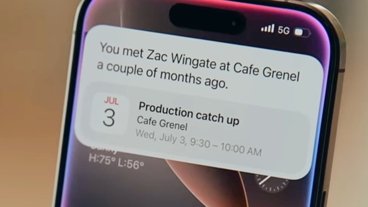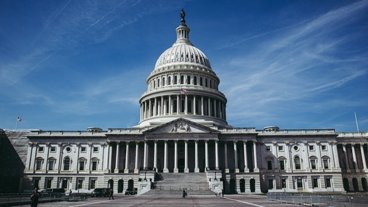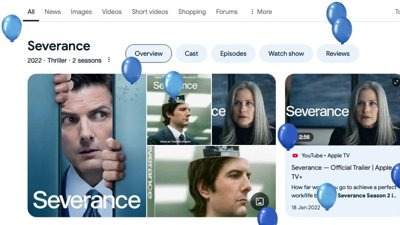Federal Trade Commission chair Lina Khan says that Big Tech firms, including Apple, had exploited "loopholes" to make hundreds of acquisition deals without informing antitrust regulators.
The FTC has published a report describing 819 incidents of transactions, over 10 years, which were small enough to not require regulatory approval. The transaction range from changes of voting control, to patent acquisition, and hiring.
According to Bloomberg, FTC Chair Lina Khan addressed a public meeting where she described the Commission's findings, and the conclusion that Big Tech was finding ways to grow unchecked.
"This study highlights the systemic nature of their acquisition strategy," she said. "Digital markets in particular reveal how smaller transactions invite vigilance."
Mergers, deals and other transactions that are large enough to be reported are said to be covered by the Hart-Scott-Rodino (HSR) Act. The FTC's report lists what it calls "non-HSR reportable transactions," which were compiled from information from five Big Tech companies.
In February 2020, the FTC issued Special Orders to Apple, Alphabet (including Google), Amazon, Facebook, and Microsoft. The orders required them to account for the "terms, scope, structure, and purpose" of acquisitions and other non-HSR deals made between January 1, 2010, and December 31, 2019.
 William Gallagher
William Gallagher








 Malcolm Owen
Malcolm Owen

 Mike Wuerthele
Mike Wuerthele

 Chip Loder
Chip Loder
 Wesley Hilliard
Wesley Hilliard
 Amber Neely
Amber Neely
 Marko Zivkovic
Marko Zivkovic








18 Comments
Maybe I’m missing something; regulators construct rules and inform companies to follow them. Companies follow said rules and are now being chastised by regulators for doing so.
She's full of nonsense. This is not new or unique to tech. Thousands of companies have been doing tens of thousands such acquisitions (they're not "mergers") that don't meet HSR thresholds for many many decades now. They're often called "A&D" (play on R&D), i.e., acquisitions and development. It's a common means for companies to grow.
It's perfectly legal and more importantly reasonable, since otherwise, investors would be deluged with too much information. Most of these A&D deals go nowhere -- for every iTunes and iPod that came out of such A&D for Apple, there are likely a hundred others that went nowhere. The Congress put in the HSR thresholds for a reason: it speaks to a larger principle that an activity must be "material" for disclosure purposes.
These are just officious, overreaching, meddlesome bureaucrats with nothing much to do, going after a successful group of companies (I am not saying there aren't other legitimate reasons to go after them, e.g., Section 230, privacy etc).
"Vigilance" my ass (paraphrasing Schiller). Someone should remind her of the wonderful quote from judge in the Epic case: success is not illegal.
Following the rules and jumping through the hoops set up by legislators is not using “loopholes”. Legislators & regulators use this kind of defamatory language in order to excuse their desire to expand the scope of their power. One could easily argue that the use of the “general welfare” & “interstate commerce” clause to skirt Amendment 10 is the real loophole, and that the vast majority of regulatory and intelligence agencies owe their entire existence to such loopholes, just as Marbury v Madison exploited a loophole of assuming the three co-equal branches of the central government in the US would be adversarial; but actual practice revealed that Congress would allow the Judiciary to seize a position as sole arbiter of constitutionality because of short term opposition to the President at the time, despite the fact that Marbury v Madison has, itself, no constitutional basis. The irony of regulators whose position in an organization that owes its existence to a loophole using the term loophole to disparage private business following the law & regulations sadly goes over the heads of too many.
Some of the comments here seem to imply that companies are being punished for exploiting loopholes, but all I see is the identification of a behavior. This conclusion would indicate that perhaps they should refine the laws to more accurately achieve their aim, but before they make changes to a law, they have to indentify potential issues with the existing laws. I think that’s what’s happening here. It’s not whining, and it’s not unfair treatment of anybody.